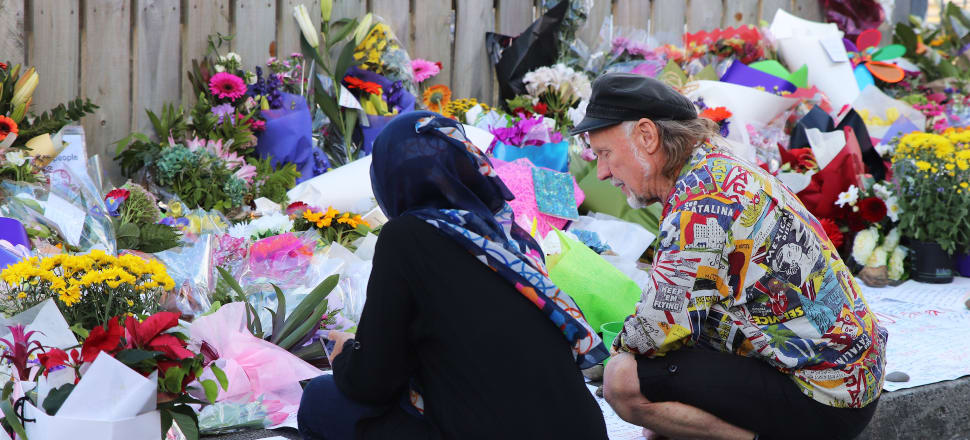
The Government has forged ahead with the aspirational task of building a more cohesive society, launching a new framework to measure wellbeing, connectedness and isolation
Priyanca Radhakrishnan had barely been a minister for a month when she was given an impossible task at the end of 2020: To make New Zealand a society where everyone has a sense of belonging, inclusion, participation, recognition and legitimacy.
In other words, her job was to build social cohesion in New Zealand, with the recognition that no country can ever be fully socially cohesive.
"It is aspirational," she concedes in an interview with Newsroom. "It's not like this is our framework, this is what we've decided and once we tick everything off 100 percent we're done. I don't think that's ever going to happen."
But she believes there is an opportunity to improve the state of affairs in New Zealand. As it stands, according to a baseline report released by the Ministry of Social Development, just two thirds of the country report high levels of trust in other people. For Māori and Pasifika, that rate is below 50 percent.
While the vast majority of New Zealanders say it's easy to be themselves here, migrants, Asian people, disabled people and LGBT people all reported lower levels of comfort with expressing their identities.
Even before the pandemic, face-to-face contact with family and friends was falling and loneliness was increasing. Migrants and young people were more likely to report higher levels of loneliness. Māori break this trend, with high rates of interaction with whānau and communities.
This is just a fraction of a vast array of data pulled together to establish the baseline for social cohesion in New Zealand. The next update is due in 2024, Radhakrishnan says.
"That gives us a clearer picture - bearing in mind that these aren't things that we can turn around in a very short span of time - of which areas we see movement in and in which perhaps there's less movement or we need to do a bit more work."
Quantifying and regularly measuring social cohesion was one of the recommendations from the Royal Commission of Inquiry into the March 15 terrorist attack. In fact, social cohesion is a major theme throughout the Royal Commission report.
"Social cohesion exists where people feel part of society, family and personal relationships are strong, differences among people are respected and people feel safe and supported by others. Social cohesion is an ideal rather than a goal to be achieved and must continually be nurtured and grown," the report says.
Radhakrishnan compares it to the way the country came together after the terror attack.
"I went to quite a few mosque open days at that point of time. People who had lived on those streets for 20 or 30 years who didn't even realise there was a mosque there but had come forward to support," she says.
"I kind of hold on to that. That's what we're wanting to work towards. We're wanting on an individual level for people to feel respected, valued, recognised for who they are and on a community level we want inclusion."
The Royal Commission report acknowledges social cohesion is more than a counter-extremism exercise - it is fundamental to "long-term prosperity" and political stability. But it does also have aspects that naturally ward off extremism.
"Social cohesion can contribute to preventing or countering extremism. This is because cohesive and resilient communities are better placed to resist and counter the risk of radicalisation and mobilisation to violent extremism and terrorism," the report argues.
"Tolerant, and ideally inclusive, societies are more able to address and prevent the polarisation and disenfranchisement that can contribute to a rise in extremism."
Despite this, the issue has received little mainstream focus even as the Government embarked on a multi-faceted policy programme to boost social cohesion. A consultation launched in June last year was overshadowed by the simultaneous debut of proposals to reform hate speech law. But it was ultimately the social cohesion work that was finalised first.
Radhakrishnan announced in October, ahead of the two-day counter-terrorism hui in Auckland, the first version of a strategic framework for social cohesion. This was accompanied by the measurement framework and a fund for community initiatives.
But there's a limit to government involvement in social cohesion - you can't legislate a socially cohesive society into being.
"You also don't want to be socially engineering things," Radhakrishan says.
Concerns about government overreach come from two perspectives: Those in minority communities worried about social cohesion being a cover for assimilation and those in privileged positions who fear a loss of their own rights.
"It is about valuing diversity. By virtue of that, you are valuing difference," she clarifies.
"It's about diversity of thought, perspectives, experiences that we can bring to the table where decisions are made. That means there will invariably be debate, there will be differences of opinion, there will be disagreement - and that's healthy, right? But we need to be able to do that in a way that is mana-enhancing and where you're not putting people down for their differences."
It will also be lead by individuals, communities and businesses, not just the Government.
"It's a collective effort. There are things that all of us can do as individuals that will make people from other sectors or communities or groups feel included."







